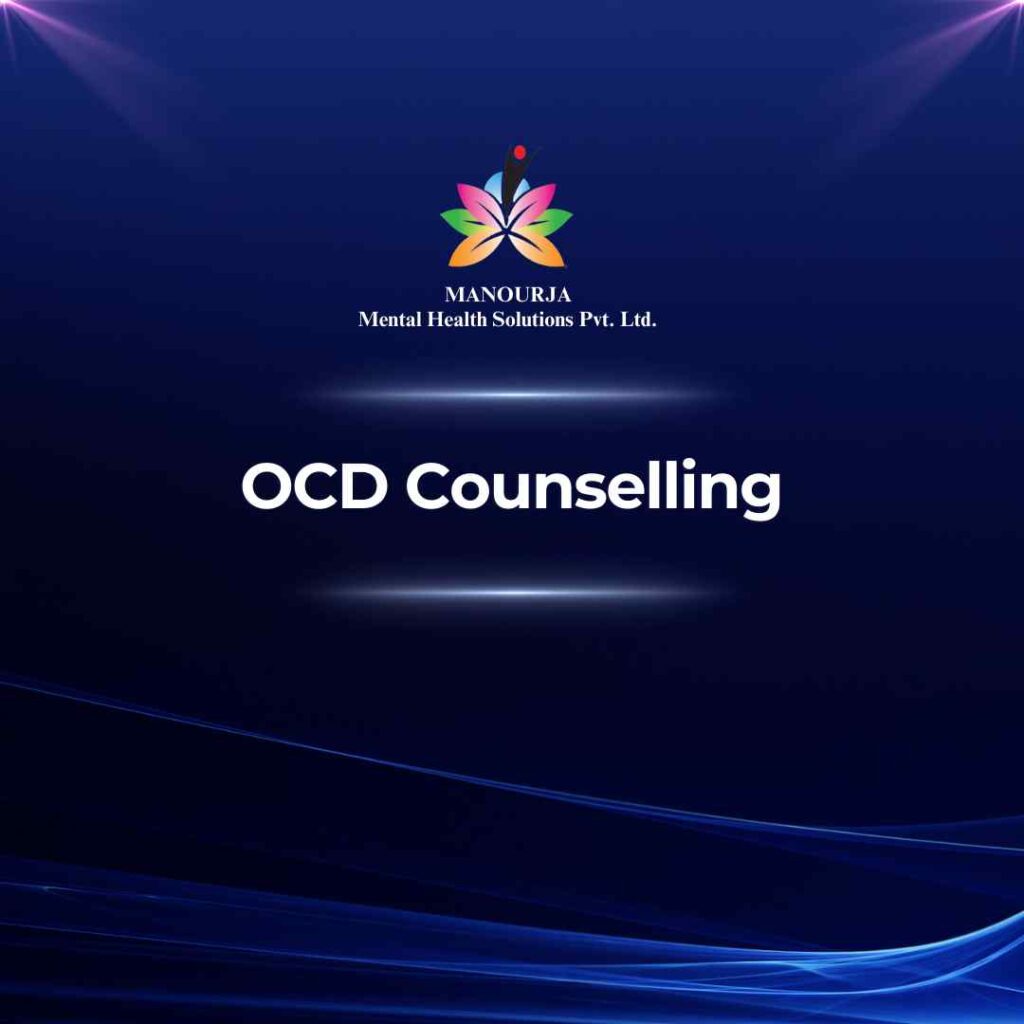Obsessive-Compulsive Disorder (OCD) Counselling

Obsessive-Compulsive Disorder (OCD) is a chronic mental health condition characterized by uncontrollable, recurring thoughts (obsessions) and behaviors (compulsions) that the individual feels the urge to repeat over and over. These symptoms can significantly disrupt daily activities and cause considerable distress.
Symptoms of OCD include
- Obsessions: These are unwanted and intrusive thoughts, images, or urges that trigger intensely distressing feelings. Common obsessions may involve fears of contamination, intense worry about forgetting to do something important that could cause harm, or unwanted thoughts, including aggression, or sexual content.
- Compulsions: These are behaviors an individual engages in to attempt to rid themselves of the obsessions and/or decrease their distress. Common compulsions include excessive cleaning, checking, counting, orderliness, and hoarding items unnecessarily.
Families often notice that their loved ones spend much time performing these rituals, which seem excessive or illogical but are extremely difficult to control.
How Counselling at MANOURJA Treats OCD
Counselling, particularly Cognitive Behavioral Therapy (CBT) including Exposure and Response Prevention (ERP), is considered among the most effective treatments for OCD. Here’s how it works:
- CBT with ERP: This approach helps individuals confront their obsessions without ‘neutralizing’ them with compulsions. ERP gradually exposes patients to the source of their anxiety so they learn to tolerate their anxiety and begin to see that their fears are unwarranted.
- Psychoeducation: Educating the individual and family about OCD is crucial. Understanding the disorder can demystify the symptoms and reduce both personal and familial distress.
- Skill Development: Counselling provides patients with tools to manage their symptoms, such as stress management techniques, relaxation strategies, and methods to interrupt obsessive thoughts.
- Supportive Counselling: This helps individuals express the emotions and frustrations that come with living with OCD, often offering a release and further insight into their experiences.
Steps in MANOURJA’s Counselling Process for OCD
- Comprehensive Assessment: A thorough evaluation helps to understand the specific nature of the individual’s obsessions and compulsions.
- Goal Setting: Collaboratively set goals focusing on reducing the frequency and severity of obsessions and compulsions, improving functioning, and enhancing overall quality of life.
- Tailored Treatment Planning: Develop a personalized treatment plan incorporating CBT, ERP, and other relevant therapeutic techniques.
- Engagement in Regular Therapy Sessions: Focus on practicing ERP techniques, discussing progress, and adjusting exposures based on the individual’s response.
- Ongoing Monitoring and Support: Regularly assess progress and make necessary adjustments to the therapy plan. Provide continuous support to encourage persistence, as managing OCD is often challenging.
By embracing a structured therapeutic approach at MANOURJA, individuals with OCD can gain significant control over their symptoms, improve their daily functioning, and lead a more fulfilling life despite the challenges of the disorder.
“Each day holds a promise of progress, no matter how small each step seems.”
